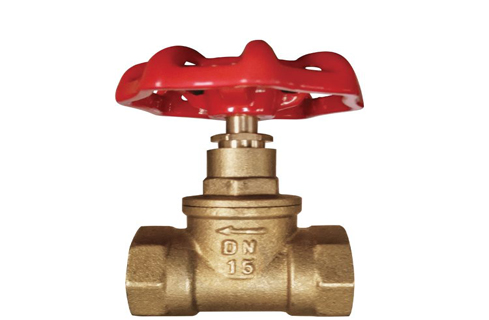Installing a valve is not an easy task. There are 4 taboos, do you know all of them? If these taboos are violated, what are the consequences? How to solve it? China Cast Iron Check Valve supplier will tell you.
1.During winter construction, a water pressure test is carried out at a negative temperature.
Consequence: As the tube freezes quickly during the hydraulic test, the tube freezes.
Measures: Try to carry out a hydraulic test before the winter application, and blow off the water after the pressure test, especially the water in the valve must be cleaned, otherwise the valve will freeze and crack.
When the water pressure test is carried out in winter, the project must be carried out at a positive indoor temperature, and the water must be blown off after the pressure test. When the water pressure test cannot be carried out, the test can be carried out with compressed air.
2. The valve installation method is wrong.
For example, the water (vapor) flow direction of the Globe Valve or check valve is opposite to the sign, the valve stem is installed downwards, the horizontally installed check valve is installed vertically, the open-stem gate valve or butterfly valve handle has no open or closed space, and the valve stem is hidden. Do not face the inspection door.
Consequences: The valve fails, the switch is difficult to repair, and the valve stem faces down often causing water leakage.
Measures: Strictly install according to the valve installation instructions. The rising stem gate valve should leave enough stem to extend the opening height. The butterfly valve fully considers the handle rotation space. Various valve stems cannot be lower than the horizontal position, let alone downward. The concealed valve should not only be equipped with an inspection door that meets the needs of valve opening and closing but also the valve stem should face the inspection door.
3. The specifications and models of the installed valve do not meet the design requirements.
For example, the nominal pressure of the valve is less than the system test pressure; the water supply branch pipe adopts a gate valve when the pipe diameter is less than or equal to 50mm; the dry and standpipe of the hot water heating adopts a stop valve; the fire water pump suction pipe adopts a butterfly valve.
Consequences: Affect the normal opening and closing of the valve and the adjustment of resistance and pressure. Even during the operation of the system, the valve is damaged and forced to be repaired.
Measures: Familiarize with the application scope of various valves, and select valve specifications and models according to design requirements. The nominal pressure of the valve must meet the requirements of the system test pressure. According to the requirements of the construction specification: the water supply branch pipe diameter is less than or equal to 50mm should use a stop valve; when the pipe diameter is greater than 50mm, a gate valve should be used. Gate valves should be used for hot water heating dry and vertical control valves, and butterfly valves should not be used for fire-fighting pump suction pipes.

4.The pipeline system was not flushed carefully before completion, and the flow rate and speed did not meet the pipeline flushing requirements. It even replaces flushing with a water pressure strength test.
Consequences: The water quality does not meet the operating requirements of the pipeline system, which often results in the reduction or blockage of the pipeline section.
Measures: Use the maximum set juice flow rate in the system or a water flow rate not less than 3m/s for flushing. The watercolor and transparency of the discharge outlet should be consistent with the watercolor and transparency of the inlet water visually as qualified.

没有评论:
发表评论